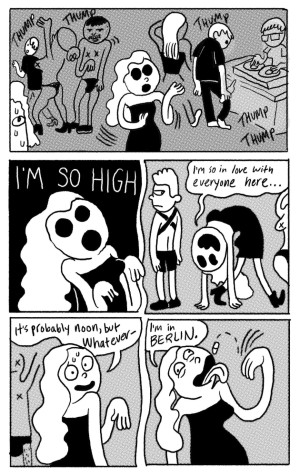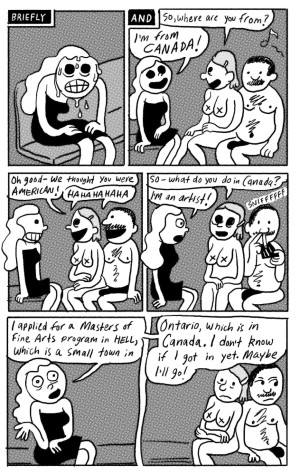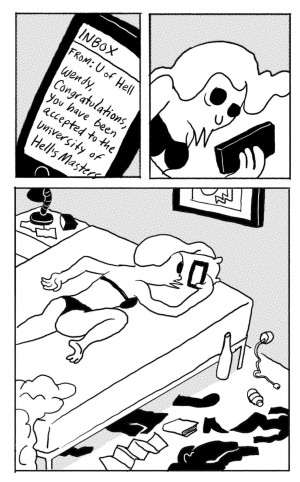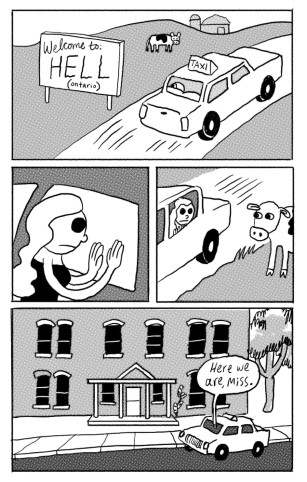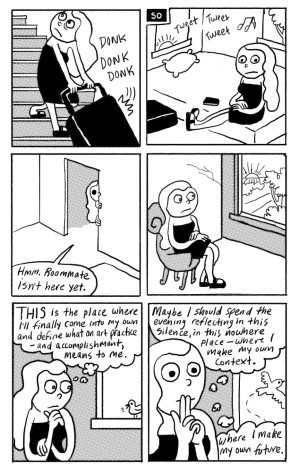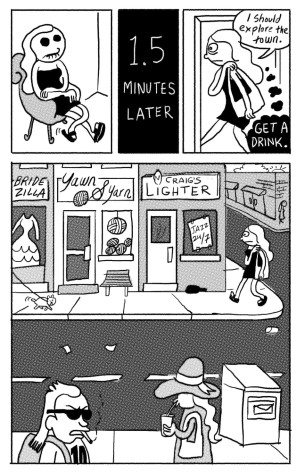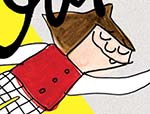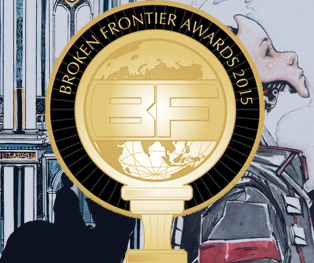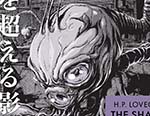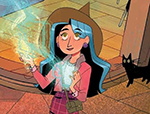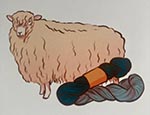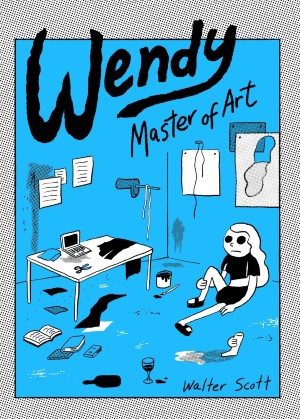 Canadian illustrator, sculptor and writer Walter Scott asks a seemingly simplistic question here: What is it like to study art at university? His answer, spelled out over a little under 300 pages, is that it can be hilarious.
Canadian illustrator, sculptor and writer Walter Scott asks a seemingly simplistic question here: What is it like to study art at university? His answer, spelled out over a little under 300 pages, is that it can be hilarious.
His character Wendy — all squiggly lines and googly-eyed — came to life in 2014, when Scott created his first graphic novel. He described her, at the time, as a hedonistic, anxious version of himself. It is the kind of persona that is instantly relatable and extremely effective as a foil. In this latest escapade, Wendy wants to be an artist and decides that the best way to pull this off is to enrol for a Master of Fine Arts at the unsubtly named University of Hell in Ontario. (I was intrigued enough to do a search for the place, and found a town named Swastika instead.)
The book opens in Berlin, where our hungover protagonist is informed that she has been accepted. She is thrust almost immediately into a group comprising roommates who epitomise everything that is amusing about our ‘woke’ generation. There is Yunji who is obsessed with string, seminar leader Cliff Masterson who boasts of alumni featured in Canadian Art Magazine, Eric who wants to be politically correct all the time, and a bunch of other students who introduce Wendy to everything from gender identity and polyamorous relationships to the sheer pretentiousness of what an arts curriculum can involve.
There is a throwaway element to the way Scott renders his characters in black and white, a deceptively devil-may-care attitude that hides the thought clearly poured into each of these panels. They effectively capture what it means to be in an environment that must encourage learning, but often manages to teach the biggest lessons only outside a classroom. Scott also uses Wendy to explore other aspects of student life — the constant sense of insecurity, questions of self-worth, doubts about careers and life choices that never fully go away.
I genuinely giggled when Wendy and her friends drove past a sign that read ‘Welcome to Toronto: Horoscopes come true here.’ Behind the snark though, there are incisive comments being made about the value of art in society, raising arguments about capitalism that seem particularly apt given the current state of broken systems the world over. Wendy evolves, taking her reader along for the ride as she sheds the past to become a better person and artist.
Scott once listed the punk scene as his inspiration for the early Wendy comics, and that helps place a lot of these pages into context. It is sometimes easy to get lost in the tongue-in-cheek comments being made, but one must also consider that the punk subculture was born of a very real rage against social injustices. That spirit flows through Wendy, making for the kind of graphic novel that you laugh along with almost nervously, knowing all the while that everything it says about society is probably closer to the truth than you would prefer it to be.
Walter Scott (W/A) • Drawn & Quarterly, $24.95/$29.95
Published in June
Review by Lindsay Pereira





